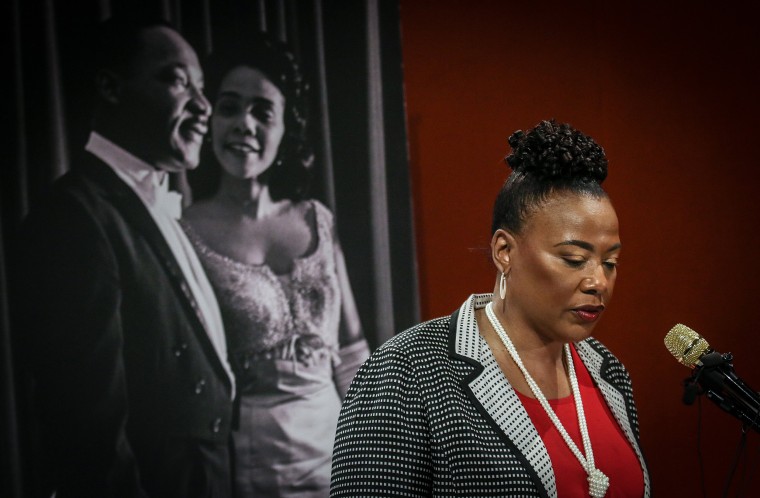ATLANTA - The center that honors slain U.S. civil rights icon Martin Luther King Jr. will celebrate his legacy by supporting voter education and registration, his youngest daughter said in a recent interview.
Bernice King, 56, said she believes her father would have been disappointed with efforts playing out in some U.S. states to purge voter rolls of people who have not recently cast ballots or to impose strict ID requirements.
“You can’t take away someone’s right to vote just because they haven’t decided to exercise it,” said King, who serves as chief executive of the King Center for Nonviolent Social Change in Atlanta. “When you take people off the voter rolls because they haven’t chosen to exercise their rights, to me, is suppression.”
Advocates of revoking the registration of inactive voters say that doing so reduces the risk of people fraudulently casting multiple ballots or voting in multiple places, though studies show that voter fraud is exceptionally rare in the United States.
Political observers note that purges disproportionately affect poor and minority voters, who are more likely to support Democratic candidates.
The King Center aims to register as many new voters as possible in a drive culminating on Monday at the Ebenezer Baptist church where King preached. Monday is the federal holiday celebrating King, who was shot dead by an assassin in 1968 at age 39.
“Change never happens just because,” Bernice King said. “There has to be a force behind that effort and people need to be involved.”
Last month, a federal judge allowed Georgia officials to purge voter rolls of about 300,000 voters who have not voted since 2012, have died or moved from the state. Opponents said that more than 120,000 people should have been left on the rolls, especially in a heavily contested presidential election year.
On Tuesday, a Wisconsin appeals court intervened to stop as many as 209,000 names from being scrubbed from the state’s voter registration rolls, in a case voting rights advocates say could impact also access to the polls in a key battleground 2020 election state.
In North Carolina, the question of new, stricter voter ID rules is still being fought in the courts. In early January, the state’s attorney general vowed to fight a recent court ruling that blocked that state’s new voter ID law.
